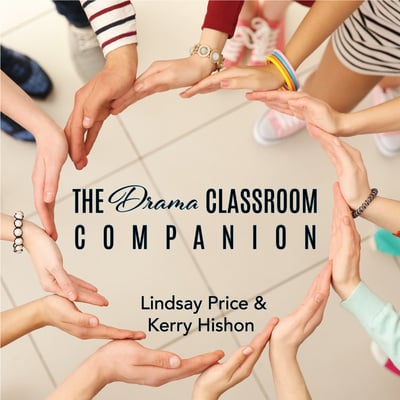There exists in everyone the potential for good or evil. Laramie Dean's adaptation of Dracula asks the question: How much would it take to bring out the darkness inside of you?
Teaching Students How to Rehearse in the Drama Classroom
Picture this scenario: You’re in drama class with your students. They’ve been divided into small groups, each group has a scene to work on, and you’ve given them the instructions: “You have x number of minutes to rehearse your scene.” The first few minutes are smooth sailing, but then everything starts to unravel. The students are standing around, giggling and gossiping, goofing off, or staring off into space — anything but rehearsing. So frustrating!
This is common with young, inexperienced students, but even senior students are sometimes guilty of speeding through their rehearsal and claiming their scene is perfect, but then when they present their work, it’s less than stellar. You know they can do better work. But they may not have been taught how to rehearse in the classroom. Simply reviewing the lines or repeating the blocking over and over isn’t helpful — it just puts the unpolished work into the students’ muscle memory.
Here are three techniques to help students make the most of their rehearsal time in the classroom — you might think of them as the 3 Fs of classroom rehearsals:
1) Give students a specific focus for the rehearsal.
If you have multiple rehearsals planned for the scenes you’re working on, have students focus on a specific acting technique during each class session. Let’s say that students have four rehearsal sessions, starting on Monday, with presentations on Friday. Students could first focus on scene and character analysis and subtext on Monday; then staging basics (such as cheating out and avoiding upstaging their scene partners) on Tuesday; volume, diction, and vocal inflections on Wednesday; character physicality on Thursday; and then present their scenes on Friday. This helps students narrow down what they’re working on and use their time more effectively each day. Feel free to re-order, add, or omit the techniques you focus on depending on your students’ needs.
2) Create a fixed focus schedule for the rehearsal time.
If your students are rehearsing and presenting on the same day, you can use a similar technique to the one above, just on a fixed, hyper-focused schedule. Let’s say your students have 30 minutes to rehearse before presentations start. Using the techniques in the previous section, create a schedule for the 30 minutes. For example: 5 minutes for analysis, 5 minutes for staging basics, 5 minutes for vocal work, 5 minutes for physicality, and 10 minutes to review and practice. Post the schedule with time increments in a visible place, and use a timer or ring a bell when it’s time for groups to switch their focus.
3) Have a student act as director and give feedback to the group.
An opportunity for interested students is to have them act as the group’s director and offer feedback as they work. Rather than participate as an actor, the student director will help the rest of the group stage the scene and give them feedback to help refine it. It’s helpful to have one student on the outside anyway, as they’re better able to see what’s going on and help the rest of the group polish the scene than if it’s self-staged by the group. They can also be responsible for keeping the rest of the group members on task. Having a group director gives students the opportunity to practice leadership and following directions, listening to each other, and giving and receiving effective feedback.
Related Articles
The Drama Classroom Companion
by Lindsay Price & Kerry Hishon
The Drama Classroom Companion is filled with articles and exercises to build the skills needed for theatrical performance as well as real world skills like creative thinking, critical thinking, collaboration, and communication.
The Rehearsal Companion
by Kerry Hishon
You’ve chosen the play, paid the royalties, done the script analysis, held your auditions, and cast the show. Tomorrow is the first rehearsal. Are you ready? Really ready? The Rehearsal Companion can help!





